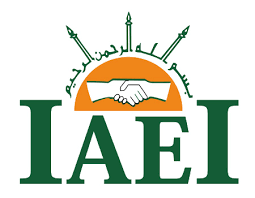Strengthening of Islamic Principles in The Halal Industry for Sustainable Development Goals
DOI:
https://doi.org/10.58968/iem.v2i1.187Keywords:
Halal industry, SDGs, Digitalization, LiteracyAbstract
In the current era of globalization, the development of the halal industry is an important agenda for planning the development strategies of countries in the world. Even in some countries that are minority Muslim countries also have a level of awareness and concern for Islamic principles in the halal industry. The halal industry in the global era continues to experience very significant growth, the halal industry also offers the concept of goodness for consumption, so it has a guarantee that products and services produce the best quality. The superiority of the halal industry lies in sharia values, such as social responsibility, environmental friendliness, preserving nature, avoiding usury, and ethical investment. In Indonesia itself, it actually has the potential to capture market opportunities for the halal industry, but there are several factors that result in a lack of application of Islamic principles in it, this is due to a lack of strengthening policies from government sectors. This type of research uses qualitative or descriptive research. This research aims to determine the effect of the development and growth of the halal industry on sustainable development. The results of the study show that the biggest challenge in the development of the halal industry is first, social diversity that influences the consumption pattern of the halal industry. Second, the low capacity of industry players such as MSMEs in understanding the supply chain of the halal industry. Third, the low level of literacy in halal industry products.
Downloads
References
A. Muri Yusuf. (2014). Metode Penelitian Kuantitatif, Kualitatif, & Penelitian Gabungan (1st ed.). Kencana.
Hidayat, A. S., & Siradj, M. (2015). Sertifikasi Halal dan Sertifikasi Non Halal pada Produk Pangan Industri. AHKAM : Jurnal Ilmu Syariah, 15(2). https://doi.org/10.15408/ajis.v15i2.2864
Khan, M. I., Khan, S., & Haleem, A. (2019). Analysing barriers towards management of Halal supply chain: A BWM approach. Journal of Islamic Marketing, 13(1), 66–80. https://doi.org/10.1108/JIMA-09-2018-0178
Komite Nasional Keuangan Syariah. (2022). Strategi Nasional Pengembangan Industri Halal Indonesia.
Mat Awal, N., A. Bakar, K., Che Abdul Rahman, A. N., & Ho Abdullah, I. (2021). Representasi Halal dan Haram dalam Wacana Parlimen Malaysia (Representations of Halal and Haram in Malaysian Parliamentary Discourse). GEMA Online Journal of Language Studies, 21, 186–208. https://doi.org/10.17576/gema-2021-2104-10
Pujayanti, D. A. (2020). Industri Halal sebagai Paradigma bagi Sustainable Development Goals di Era Revolusi Industri 4.0. Youth & Islamic Economic, 1(01), Article 01.
www.uin-suka.ac.id. (n.d.). FEBI UIN Suka Menyelenggarakan Konferensi Internasional Keuangan Islam. Retrieved 14 October 2022, from https://uin-suka.ac.id/id/berita/detail/824/page/prgram
Zein Lokot. (2020). Penguatan Industri Halal bagi Daya Saing Wilayah: Tantangan dan Agenda Kebijakan. 1(2), 25.
Zulfakar, M. H., Anuar, M. M., & Talib, M. S. A. (2014). Conceptual Framework on Halal Food Supply Chain Integrity Enhancement. Procedia - Social and Behavioral Sciences, 121, 58–67. https://doi.org/10.1016/j.sbspro.2014.01.1108

























